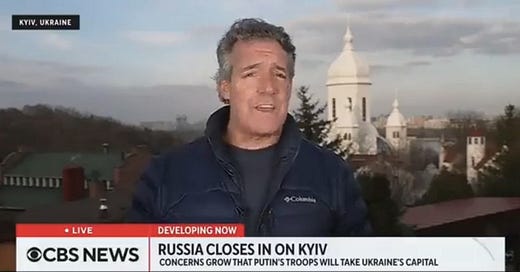When Skin Color Becomes a Passport
When the refugees are blonde-haired and blue-eyed, the reception is very, very different
Like virtually every person in the free world, I’m pulling for the citizens of Ukraine. Their plight is the real-life embodiment of David versus Goliath — good versus evil. I find myself pulling for them, despite their ridiculously long odds.
What is especially compelling to observe is the evolution of Volodymyr Zelenskyy, the Ukrainian …
Keep reading with a 7-day free trial
Subscribe to The Journeyman. to keep reading this post and get 7 days of free access to the full post archives.




